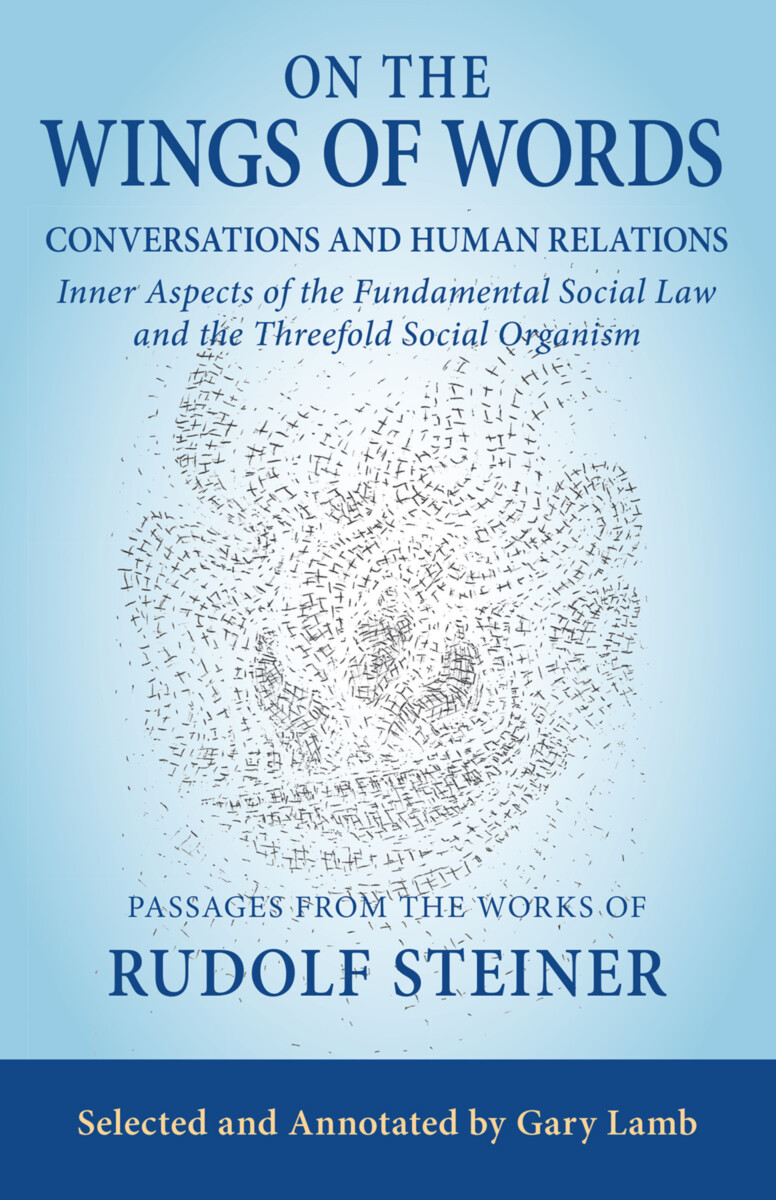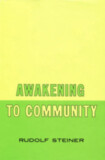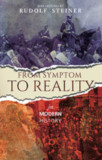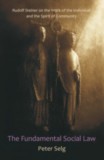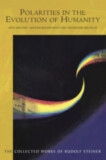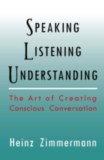On the Wings of Words
Conversations and Human Relations: Inner Aspects of the Fundamental Social Law and The Threefold Social Organism
- Publisher
SteinerBooks - Published
13th February - ISBN 9781621483656
- Language English
- Pages 96 pp.
- Size 6" x 9"
“We live in [a time when] human beings must become independent. But on what does this depend? It depends on people’s ability...to become self-assertive, to not allow themselves to be put to sleep [in their thinking]. It is the antisocial forces that require development in this time, for consciousness to be present. It would not be possible for humanity in the present to accomplish its task if...these antisocial forces did not become ever more powerful; they are indeed the pillars on which personal independence rests. At present humanity has no idea how much more powerful antisocial impulses must become.” — Rudolf Steiner (Dec. 12, 1918)Rudolf Steiner’s profound and practical insights and indications concerning what happens when human beings meet and interact with one another are scarcely known and studied seriously by few. But, despite having been worked with but scantly in the last hundred years, these indications and insights could easily provide the basis for a widescale reawakening of our own, perhaps latent, capacities to listen, speak, and understand one another at a higher level, as beings of soul and spirit.
This volume, edited and compiled by Gary Lamb, provides a succinct yet thorough overview of Steiner’s many remarks and insights into the mysteries of social encounter, as well as offering helpful commentary and contextualization.
Using Steiner’s words, and his own thread of commentary running throughout, Lamb shows how spiritualized conversations and interpersonal dynamics attained through rigorous self-development practices provide the necessary soul-spiritual substance and forces necessary for the overcoming of evil in modern life.
“Many thanks to Gary Lamb for collecting so much of what Rudolf Steiner said and wrote about human relationships! This work provides a wonderfully concentrated expression of what spiritual science can contribute toward a positive social future by way of enhanced self-awareness and active self-transformation.”
— Sherry Wildfeuer, editor, Stella Natura Biodynamic Planting Calendar
C O N T E N T S:
Background and Context
Editor’s Notes
PART ONE
The Soul Dynamics of Human Encounters in Modern Life
Soul Dynamics within Thinking, Feeling, and Willing during Human Encounters
Listening with the Soul—Being Tolerant and Respectful of Other People’s Opinions
Control of Thinking and Forming Imaginative Pictures
The Creation of Undesirable Elemental Beings through Inappropriate Speech, Soul Attitudes, and Social Arrangements
Spiritualized Human Encounters and Associations
Rituals and Reverse Rituals as Acts of Invocation
Brief Review of Part 1
PART TWO
In Harmony with the Fundamental Social Law and the Threefold Social Organism
PART THREE
Future-Bearing Work: Developing an Objective Understanding of Other People’s Faults and Weaknesses
PART FOUR
The Mission of Christ and the Mystery of Golgotha Related to Key Ideas in Parts 1–3
APPENDIX
1: Earth Evolution: Seven Cultural Ages
2: Time Spirits and their Reigns
Bibliography
Acknowledgements
Rudolf Steiner
Rudolf Steiner (b. Rudolf Joseph Lorenz Steiner, 1861–1925) was born in the small village of Kraljevec, Austro-Hungarian Empire (now in Croatia), where he grew up. As a young man, he lived in Weimar and Berlin, where he became a well-published scientific, literary, and philosophical scholar, known especially for his work with Goethe’s scientific writings. Steiner termed his spiritual philosophy anthroposophy, meaning “wisdom of the human being.” As an exceptionally developed seer, he based his work on direct knowledge and perception of spiritual dimensions. He initiated a modern, universal “spiritual science” that is accessible to anyone willing to exercise clear and unbiased thinking. From his spiritual investigations, Steiner provided suggestions for the renewal of numerous activities, including education (general and for special needs), agriculture, medicine, economics, architecture, science, philosophy, Christianity, and the arts. There are currently thousands of schools, clinics, farms, and initiatives in other fields that involve practical work based on the principles Steiner developed. His many published works feature his research into the spiritual nature of human beings, the evolution of the world and humanity, and methods for personal development. He wrote some thirty books and delivered more than six thousand lectures throughout much of Europe. In 1924, Steiner founded the General Anthroposophical Society, which today has branches around the world.


